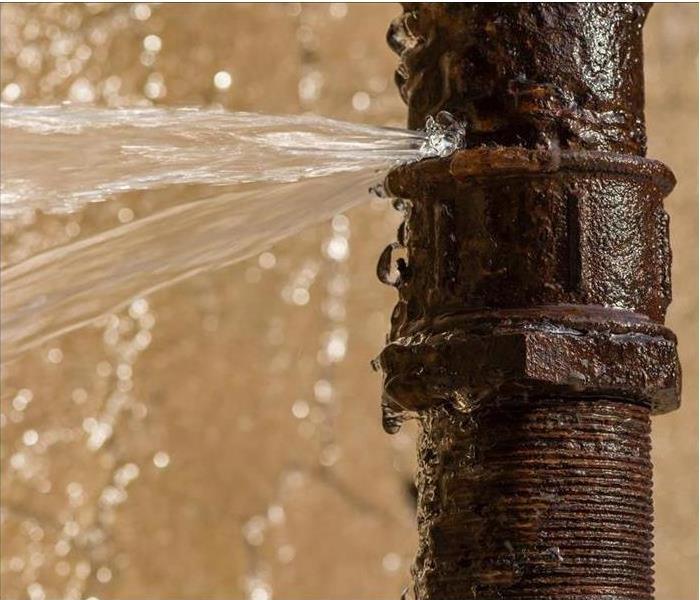How To Handle Burst Pipes and Flooding
6/24/2021 (Permalink)
When bursting pipes cause flooding in the basement, your first step is to stop the water coming into the home; do this by shutting off the water main. The next step is to contact a professional for immediate remediation. At this point, you can begin removing water from your Hamilton Mill, GA, home. A word of caution: if there's any risk of electricity and water mixing, turn off the electricity before getting near the water.
Signs of Leaking Pipes
If you're lucky, you can catch the warning signs of hidden leaks before you have to deal with bursting pipes. If you recognize any of the following signs, act immediately to fix broken pipe hardware.
- Bulging walls, sagging ceilings, spongy flooring
- Stains on surfaces of the home
- Musty smell
- Unexplained increase in your water bill
- The appearance of mold or mildew on the walls
- A notice from your water meter
You may have lots of questions. Here are some of the answers you need.
1. How many days will the cleanup take?
The most accurate answer to this question is that it depends on what type of water flooded the basement, how long the water was there, and what type of materials were involved. However, most of the time, water damage takes about three to five days to clean up. If you had wood floors or other special circumstances, the damages may take about a week and a half.
2. What are the long-term results of water damage on my home?
Long after you fix broken pipe connections and other sources of flooding, you may find effects of direct water contact. Some of those results include sagging drywall, swelling wood, peeling paint, and damaged electronics. Anywhere water came in contact with the home, there is the potential for mold growth, as well.
3. Can't I handle bursting pipes on my own?
It is best to work with a remediation professional who understands the risks and the long-term consequences. If you want to avoid further damages and mold growth, discuss the situation with an expert.






 24/7 Emergency Service
24/7 Emergency Service
